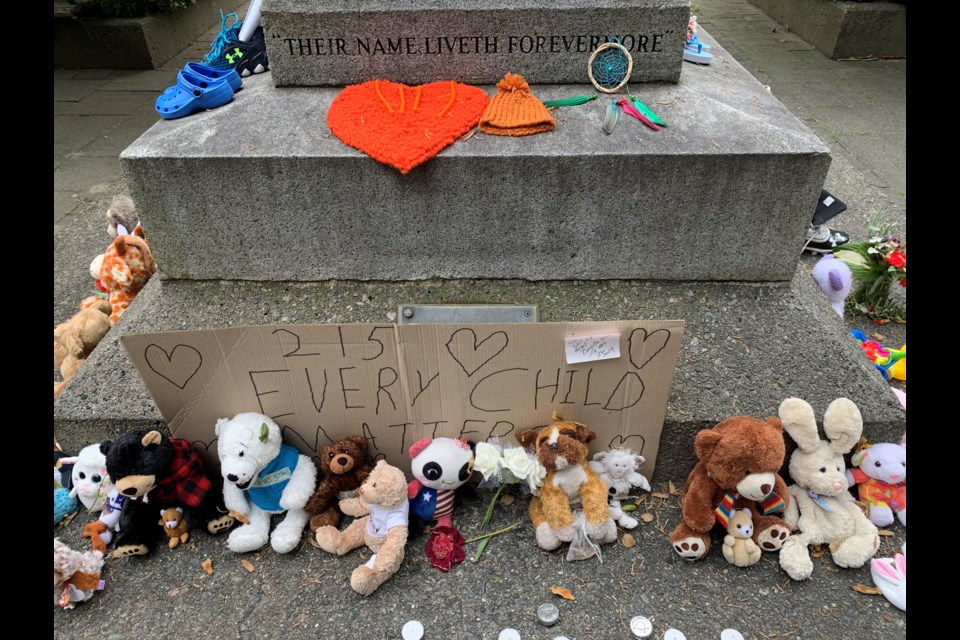“I am still here.”
The words are said in the Okanagan language, the message is powerful and possibly even liberating for a Coquitlam chiropractor who is speaking out about the need to do right by families who lost children to Canadian residential schools.
Dr. William Shannon is a Metis elder who felt both sadness and anger when the news broke last week that the bodies of 215 children were discovered outside of a former Kamloops residential school.
“Can you imagine someone’s government coming in and taking your child, and that child possibly being abused or even being killed,” said Dr. Shannon of Lincoln Centre Chiropractic.
Shannon’s own father lived in a Catholic school in Lloydminster, Sask. with his two brothers for four years until they ran away, jumping onto a freight train heading west to Vancouver.
His dad, a dockworker until drafted into the Canadian army in the Second World War, did not speak much about his experiences, but it was known in the tightly-knit family that he suffered abuse, including being locked in an empty room for seven days with no food and a tin can as a toilet.
“During his time at this school, he witnessed 50 graves appear behind the school,” Dr. Shannon writes in a letter to Mary Ellen Turpel Lafond, director of residential school history and dialogue at UBC.
“This amounts to genocide and/or mass murder. If relatives came inquiring about their children,” he writes, “they were told: ‘your child ran away.’”
Growing up in Rossland, Dr. Shannon said his was the only non-caucasian family in the community and the family kept their Metis heritage to themselves.
But for the more than 20 years he practiced in the Kamloops, Vernon and Shuswap areas, he made it a point to learn the Okanagan language of the Syilx people as well as Cree.
He’s also knowledgeable about the Truth and Reconciliation Commission and its findings that more than 150,000 First Nations, Metis and Inuit children were forced attend church-run government-funded schools between the 1870s and 1997.
More than 4,100 children reportedly died in these schools, mostly due to malnourishment and disease.
However, he never made a point of talking about his heritage or openly taking a stand — until now.
“There comes a time when outrage is a good motivator.”
Now, Dr. Shannon is adding his voice to those who say more should be done to acknowledge the missing children and make reparations to the families whose children are buried outside Canadian residential schools.
Dr. Shannon is calling for a team of forensic anthropologists to exhume the children’s skeletons, extract DNA from the teeth and match it with close relatives.
“The families need to have their children returned to them,” he says in his letter.
“The government needs pay for all costs as well as proper funeral and burial costs.”
Because of the recent Kamloops revelation more Canadians know about what went on at the residential schools, he said, and while he’s pleased that people are more open to discussing this dark period in the country’s history, it’s not quite enough.
“The fact is it’s still there,” he said, speaking of the residential school deaths that were known but never properly dealt with, and, acknowledging his own need to speak out now.
“And I’m still here, too.”
For immediate assistance to those who may need it, the National Indian Residential School Crisis Line is available 24 hours a day at 1-866-925-4419.





